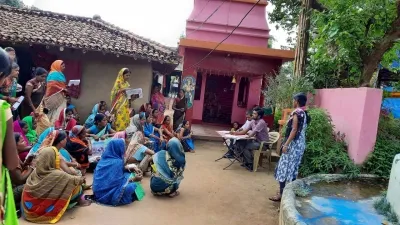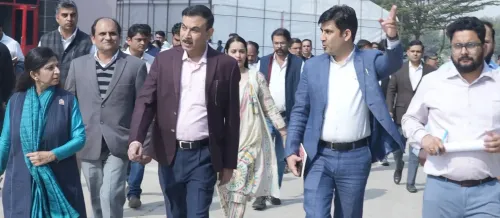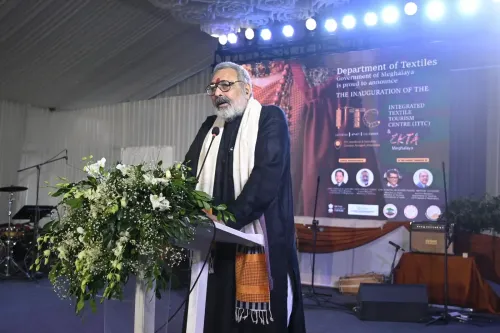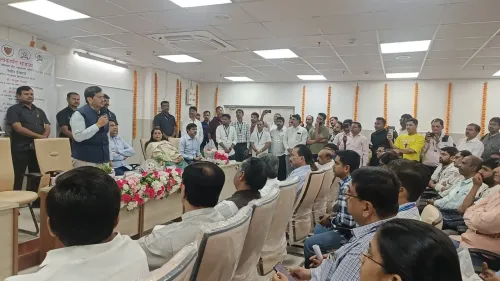Have 118 Million Women Consumers in India Entered the Credit Mainstream for the First Time in 10 Years?

Synopsis
Key Takeaways
- 118 million women now have access to credit.
- Formal credit access has reached over 714 million individuals.
- Retail delinquencies decreased by 130 bps.
- Financial literacy is crucial for sustainable credit use.
- Credit Information Companies (CICs) play a vital role in financial inclusion.
Mumbai, July 3 (NationPress) A significant milestone has been reached as 118 million women consumers in India have entered the credit mainstream for the first time in a decade, revealing new opportunities that were previously out of reach, according to a report released on Thursday.
Over 714 million individuals have now gained access to formal credit, which has significantly benefited households across the nation over the past 20 years, as highlighted in the report by TransUnion CIBIL during a conference in the city.
Additionally, retail delinquencies (defined as balances that are 90 days or more overdue) have shown improvement, decreasing by 130 basis points over the last decade, the findings indicate.
As India's credit landscape expands into new segments and regions, the emphasis is shifting towards enhancing access to financial services that are supported by data-driven insights, transparency, and informed risk management practices.
According to M. Rajeshwar Rao, Deputy Governor of the Reserve Bank of India (RBI), "Credit reporting systems today serve as a vital component of the national financial framework, promoting broader credit access, bolstering financial inclusion, ensuring effective oversight, and improving financial stability.
"A sustainable credit ecosystem is built on the foundation of an empowered consumer, which is achieved through financial awareness and literacy among customers," he stated.
"While regulations demand transparency and awareness, the onus lies with all stakeholders to fulfill this responsibility. Financial literacy is not a one-off initiative; it requires ongoing commitment from all institutions involved," he emphasized to the audience.
The establishment of credit information companies (CICs) marked the beginning of this journey towards financial inclusion and democratization of credit.
"Even as we progress, the role of CICs remains critical in achieving the goal of comprehensive financial inclusion," Rao added.
According to Bhavesh Jain, MD and CEO of TransUnion CIBIL, India's credit ecosystem is evolving to become more inclusive, transparent, and prepared for the future.
"Dependable data allows lenders to make strategically informed decisions, which ultimately aids borrowers in building and enhancing their financial profiles. Our aim is to empower all parties to navigate this transformation responsibly and sustainably," he noted.
Amitabh Chaudhry, MD and CEO of Axis Bank, remarked, "It is essential to invest in financial literacy, helping borrowers comprehend their credit health and formulate long-term financial strategies."










